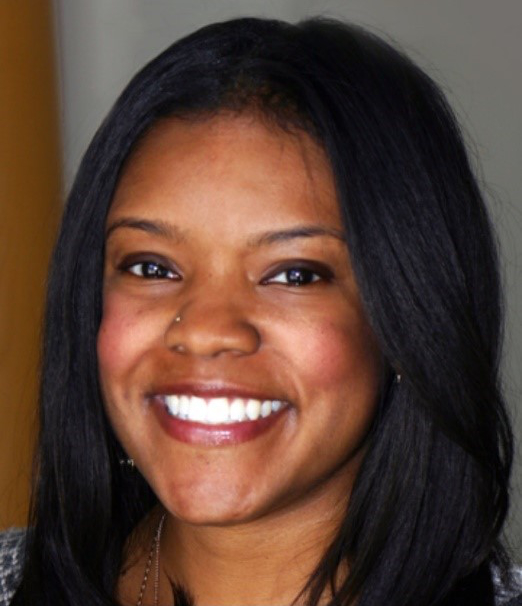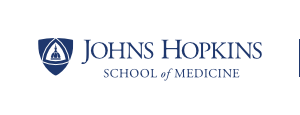JHSPH Alumni Profiles
Dr. Clara Zachary
 Dr. Ciara Zachary received her PhD in the Bloomberg School of Public Health in the Department of Health Behavior and Society. Before coming to Hopkins, Dr. Zachary completed her MPH at the University of North Carolina at Chapel Hill, with a focus in Health Behavior and Health Education. During her doctoral work, she was awarded a pre-doctoral fellowship from the American Evaluation Association and worked with the Annie E. Casey Foundation for her internship. After completing her PhD and a postdoctoral fellowship, Dr. Zachary worked as a Senior Health Research Associate for Econometrica, Inc., and then as a Health Policy Analyst for the North Carolina Justice Center. Dr. Zachary is currently the Health Program Director for NC Child, which is non-profit advancing public policy related to children, where she leads health program and policy efforts.
Dr. Ciara Zachary received her PhD in the Bloomberg School of Public Health in the Department of Health Behavior and Society. Before coming to Hopkins, Dr. Zachary completed her MPH at the University of North Carolina at Chapel Hill, with a focus in Health Behavior and Health Education. During her doctoral work, she was awarded a pre-doctoral fellowship from the American Evaluation Association and worked with the Annie E. Casey Foundation for her internship. After completing her PhD and a postdoctoral fellowship, Dr. Zachary worked as a Senior Health Research Associate for Econometrica, Inc., and then as a Health Policy Analyst for the North Carolina Justice Center. Dr. Zachary is currently the Health Program Director for NC Child, which is non-profit advancing public policy related to children, where she leads health program and policy efforts.
Currently I am the Health Program Director at NC Child, which is a statewide nonprofit organization that advocates for policies and programs to help children reach their full potential. My position is a new role focused on how many aspects of how children grow up to be successful adults and contribute to their communities is reliant on health, which connects a lot with my training at Hopkins. I help oversee our oral health work, our environmental health work, community engagement and education, and the bulk of my work focuses on the state’s Medicaid program. On a typical day that could mean anything from I’m in a bunch of meetings, with state administrators and state lawmakers to fellow advocates, to reading up on research papers to create our messaging to share with key influencers who will hopefully support programs and policies that we think have the best interest of children’s health.
Econometrica is a mid-size or smaller research consulting firm, and I was in the health department as a research associate. What was interesting about transitioning from doing my own thesis research was mostly the pace and how quickly you have to turn work around. My role conducting the evaluation of programs, for maybe up to like 5-6 projects at a time. Later, when I became a project manager, the challenge was really understanding the needs of my clients. Sometimes you have to balance “what would a great evaluator do?” vs. “what does your client need and want?”, and their timeline for deliverables. Most of the clients I had were working for federal government agencies, so adjusting to what are some of the metrics and indicators that best fit the lens in which they look at program planning and interventions. Also, even though there are a lot of partnerships in academia and you lean on other people’s expertise, working with a larger consulting firm you really have one role. When I was writing my thesis, I felt like I was in charge of every aspect of it and had ownership of the direction, so letting go of the sense of ownership, or even what is the best thing that science or social scientists prove to get the job done for the needs of the clients was a little bit of an eye opener.
I tried to reach out to networks that I had existing from either my fellowships or programs, but also other public health graduates that I knew. I reached out to career resources. I did a lot of searches on the typical sites, but my social network it was the greatest help. I had reached out to a former faculty member from my master’s program to say I was looking at various job opportunities, and she was a consultant at Econometrica for the injury prevention work, and she linked me up and that was how I got that job.
As I was figuring out more that I wanted to get into evaluation research and do that kind of work, I stumbled across the American Evaluation Association (AEA) fellowship that they had for unrepresented minorities. Based on my location, I got paired with the Annie E Casey foundation and they had a school-based project working to keep kids engaged and to reduce secondary school dropouts. So that experience was really helpful because I learned about AEA, attended their conferences, and learned more about evaluation from folks who evaluate all types of programs. Also, I gained an understanding of the philanthropic world of The Annie E. Casey Foundation, their investments in communities and children, and got to see from a philanthropic/nonprofit point of view the importance of research that informs their grant making or grant awarding. Also, it allowed me to see how programs that are running need evaluators to evaluate their work. So, I enjoyed that experience, with the foundation and specifically on that project because I think it helped to blend the concepts of social determinants of health and to help lead to success for children, which I apply to my current job.
Working for a private research consulting firm, you definitely have a higher salary, which is hard to give up switching to nonprofit or policy advocacy work. However, if you’re thinking of work life balance or work-life intersection, it may balance out. For example, when I was working for a private consulting firm, it was a nice salary (you can easily get to 6 figures if that is something that inspires or motivates you), but thinking about vacation leave and expected hours to work, there were many days that I was working 10+ hours. You may get federal holidays, you might not. Having extended breaks around holidays may not be in the cards. Because you are consulting and meeting the needs of the clients, some clients really feel like they should have access to you at any hours of the day or week.
So moving on to nonprofit life, salary is lower than private research consulting, however a lot of nonprofits offer a lot of things to compensate for a lower salary. Many nonprofits cover health insurance, you may get up to 6 weeks of paid time off in addition to federal holidays, depending on the values of the agency you may get extended or longer maternity or paternity leave, and a flexible work schedule. There are definitely days that I work 10+ hours working on policy advocacy, but I think there is an understanding of rewarding the hard work – so if you do work a long week, you might get compensated with time off the next week, where you can work fewer hours and you can have more work life balance. So that is definitely a benefit. There is also the possibility for Student Loan forgiveness, which is a bonus to think about working for government or nonprofit. If you do have student loans, if you work 10 years, those loans will be forgiven. Overall, I think it is important to think about what work is rewarding, what skills you want to build, and the lifestyle you want to lead.
I think if they are interested in AEA or evaluation, I think the GEDI fellowship a great experience and opportunity to be linked with other professionals., There are so many niche organizations. If you’re interested in injury prevention, there are conferences you can start attending. These organizations sometimes have student or young professional groups, so getting involved in those, and meeting people, and getting on those listservs can make you aware of opportunities. That’s how I learned about the AEA, just from being on different professional or student listservs, and saw this opportunity that lined up with some of the goals that I wanted to get out of my graduate work experience.
Also, if you don’t think you’re going to be based in MD, and you have an idea of the location you want to be in, looking at their department of public health or other divisions that relate to health work and research can be another opportunity to look for summer internships at the time. I spent a summer in NYC, so I got an internship in their Department of Public Health and Hygiene. I think looking at those opportunities to participate in young professional forums has been very helpful.
Just being in Baltimore, you are very close to DC, and it is such a great location, especially if you want to pursue policy. So even if it’s not doing direct policy work, if you just want to participate in that organization’s ‘lobby day” and just show up and see how do people from across the state or across the country gather together to try to create a movement. That’s something I didn’t do in grad school and I’ve learned now from this position, it has opened my eyes to how that is important to policy work.
Thank you again to Dr. Ciara Zachary for her time in conducting this informational interview.
This interview was conducted by Julie Nadel, PhD, in collaboration with the Professional Development and Careers Office at the Johns Hopkins School of Medicine.
Current students: if you are interested in connecting with Dr. Zachary or other alumni for your own career exploration, please contact: phd_recruit@jhmi.edu.
Alumni: If you are willing to be contacted by a current student for an informational interview to have a profile made about your career path, please contact: phd_recruit@jhmi.edu.
